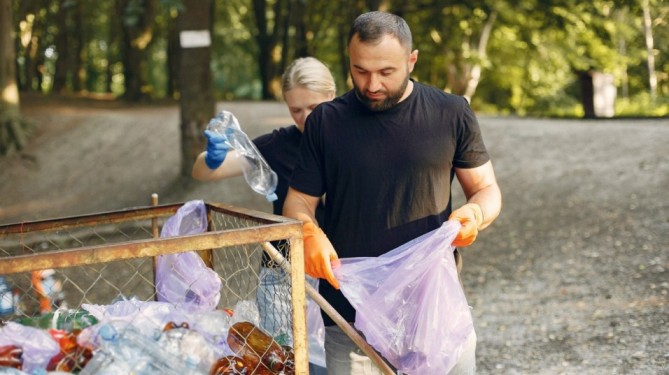Introduction
As more people move to cities, they are exacerbating waste management problems. Now there is more waste than ever before. Several solutions come from governments, businesses, and people working together. Everyone is responsible for the waste problem; thus everyone should help to address it. This article discusses how individuals can help manage and dispose of waste in their own communities and beyond.
Reducing Waste at the Source
It’s best not to reduce waste. Living simply and being mindful of your finances can have a significant impact. Shopping smart can help reduce waste at home. Don’t pack too much; instead, choose items that can be used for multiple purposes. Not buying things you don’t need is beneficial for your wallet, the environment, and your mental well-being. There are various small skips for hire everywhere; seek help from them for controlled waste management.
Composting Organic Waste
Daily organic waste can be composted for environmental benefit. Instead of releasing methane in landfills, composting converts food and garden waste into fertiliser. Let apple cores, vegetable peels, eggshells, and garden clippings decompose in a regulated environment. This creates rich compost for gardens, lawns, and houseplants. This reduces waste, improves soil quality, and reduces the need for artificial fertilisers. Composting daily may improve communities and the planet.
Reusing Items to Extend Their Lifespan
A significant portion of the waste in landfills can be repurposed. Glass jars, cloth bags, plastic containers, and furniture typically have a considerable amount of life remaining after they are used. You can reduce the number of new things you need by using what you already have in innovative ways. It also reduces the waste generated from producing and packaging new items. You can use old garments as cleaning rags and refurbish furniture that has seen better days. Reuse is a way to be more environmentally friendly and resourceful in waste management.
Reducing Single-Use Plastics
Reduce single-use plastics including straws, cutlery, water bottles, and shopping bags, which exacerbate environmental pollution. Though used for a few minutes, they can last hundreds of years. Reusable bags, bottles, and containers are a simple yet effective approach to halt this disaster. You may avoid plastic packaging by using paper, glass, or metal. This cuts plastic consumption. Living without single-use plastics can help reduce litter and safeguard marine and terrestrial ecosystems.
Embracing the Practice of Recycling
One of the most common ways to get rid of waste is to recycle it. People need to learn how to separate recyclables from waste and clean and dry things before putting them away. It is customary to throw away dirty recycling streams in landfills. Find out what things local recycling centres will take. Some plastics need special equipment to be recycled. People may aid the circular economy, where things are constantly reused, by recycling correctly. This reduces the amount of waste that ends up in landfills.
Donating and Sharing Rather Than Disposing
A lot of the things we throw away may be useful to someone else. You may give your old clothes, gadgets, books, furniture, and appliances to charities, shelters, and secondhand stores. Online platforms make it easy to give and trade things in your community. Sharing tools, clothing, and rides reduces waste and the need to own things. Think about being generous and sharing to live longer and use less.
Practising Responsible E-Waste Management
Electronic waste is growing rapidly worldwide. Smartphones, computers, TVs, and batteries can harm land and water if not disposed of correctly. Instead of tossing these things away, choose a licensed e-waste recycling firm. Some businesses will collect your old electronics from various locations in your area. Throwing things out the right way preserves the environment and gets metals and rare earth elements back.
Final Thoughts
Even if the waste management situation seems overwhelming, remember that real change begins with one person. How we buy things, throw them away, and talk to one other all have an impact on our communities. Not just governments and businesses need to deal with waste properly. To make a difference, everyone must work together and consider the impact of their actions. You may have a big effect by helping to make the world a better place, supporting smart laws, and teaching others. We all need to take little, regular measures to clean up the world.



